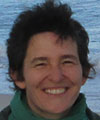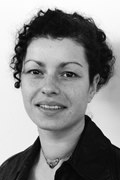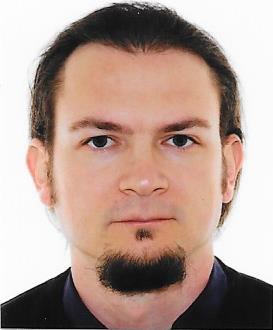Studying at the University of Verona
Here you can find information on the organisational aspects of the Programme, lecture timetables, learning activities and useful contact details for your time at the University, from enrolment to graduation.
Academic calendar
The academic calendar shows the deadlines and scheduled events that are relevant to students, teaching and technical-administrative staff of the University. Public holidays and University closures are also indicated. The academic year normally begins on 1 October each year and ends on 30 September of the following year.
Course calendar
The Academic Calendar sets out the degree programme lecture and exam timetables, as well as the relevant university closure dates..
| Period | From | To |
|---|---|---|
| Sem. 1A | Sep 26, 2022 | Nov 5, 2022 |
| Sem. 1B | Nov 14, 2022 | Dec 23, 2022 |
| Sem. 2A | Feb 13, 2023 | Mar 30, 2023 |
| Sem. 2B | Apr 11, 2023 | May 27, 2023 |
| Session | From | To |
|---|---|---|
| Sessione Invernale | Jan 9, 2023 | Feb 11, 2023 |
| Sessione Estiva | Jun 5, 2023 | Jul 22, 2023 |
| Sessione Autunnale | Aug 28, 2023 | Nov 23, 2023 |
| Sessione straordinaria invernale | Jan 8, 2024 | Feb 17, 2024 |
| Session | From | To |
|---|---|---|
| Sessione Estiva | Jul 10, 2023 | Jul 15, 2023 |
| Sessione Autunnale | Nov 6, 2023 | Nov 11, 2023 |
| Sessione invernale | Apr 2, 2024 | Apr 8, 2024 |
| Period | From | To |
|---|---|---|
| Festa di Ognissanti | Nov 1, 2022 | Nov 1, 2022 |
| Festività Della Immacolata Concezione | Dec 8, 2022 | Dec 8, 2022 |
| Vacanze natalizie | Dec 24, 2022 | Jan 8, 2023 |
| Vacanze di Pasqua | Apr 7, 2023 | Apr 10, 2023 |
| Festa della Liberazione | Apr 25, 2023 | Apr 25, 2023 |
| Festa del lavoro | May 1, 2023 | May 1, 2023 |
| Festa del Santo Patrono | May 21, 2023 | May 21, 2023 |
| Festa della Repubblica | Jun 2, 2023 | Jun 2, 2023 |
| Chiusura estiva | Aug 14, 2023 | Aug 19, 2023 |
Exam calendar
Exam dates and rounds are managed by the relevant Humanistic Studies Teaching and Student Services Unit.
To view all the exam sessions available, please use the Exam dashboard on ESSE3.
If you forgot your login details or have problems logging in, please contact the relevant IT HelpDesk, or check the login details recovery web page.
Should you have any doubts or questions, please check the Enrollment FAQs
Academic staff
 carlo.callegaro@univr.it
carlo.callegaro@univr.it
 piergiorgio.reggio@univr.it
piergiorgio.reggio@univr.it
Study Plan
The Study Plan includes all modules, teaching and learning activities that each student will need to undertake during their time at the University.
Please select your Study Plan based on your enrollment year.
1° Year
| Modules | Credits | TAF | SSD |
|---|
2° Year activated in the A.Y. 2023/2024
| Modules | Credits | TAF | SSD |
|---|
1 MODULE TO BE CHOSEN BETWEEN THE FOLLOWING| Modules | Credits | TAF | SSD |
|---|
| Modules | Credits | TAF | SSD |
|---|
1 MODULE TO BE CHOSEN BETWEEN THE FOLLOWING| Modules | Credits | TAF | SSD |
|---|
Legend | Type of training activity (TTA)
TAF (Type of Educational Activity) All courses and activities are classified into different types of educational activities, indicated by a letter.
Type D and Type F activities
I 9 crediti liberi a scelta dello studente (ambito “D”) hanno lo scopo di offrire allo studente la possibilità di personalizzare il proprio percorso formativo permettendo di approfondire uno o più argomenti di particolare interesse legati al proprio percorso accademico.
Per garantire questo fine, si invitano gli studenti a rispettare le seguenti indicazioni per il completamento di tale ambito:
- almeno un’attività formativa erogata come esame universitario (con relativo voto in trentesimi) selezionato tra le attività del proprio piano non seguite in precedenza o fra gli insegnamenti dei CdLM del Dipartimento di Scienze Umane;
- massimo 6 cfu relativi a competenze linguistiche (oltre a quelli previsti dal PdS);
- massimo 6 cfu relativi a competenze informatiche (oltre a quelli previsti dal PdS);
- massimo 4 cfu di tirocinio, (oltre a quelli previsti dal PdS);
- massimo 6 cfu di attività laboratoriale/esercitazioni (compresi quelli previsti nei PdS per l’ambito) di regola viene riconosciuto 1 cfu ogni 25 ore di attività;
- massimo 6 cfu di attività seminariale/convegni/cicli di incontri/formative in genere (sia accreditata dal Dipartimento di Scienze Umane che extrauniversitaria) – di regola viene riconosciuto 1 cfu ogni 8 ore di partecipazione e/o 2 giornate salvo diversamente deliberato;
- non vengono valutate attività svolte in Erasmus non inserite nei Learning Agreement.
Altre informazioni sono reperibili nella Guida per i crediti liberi che è possibile trovare quì.
COMPETENZE TRASVERSALI
Scopri i percorsi formativi promossi dal Teaching and learning centre dell'Ateneo, destinati agli studenti iscritti ai corsi di laurea, volti alla promozione delle competenze trasversali:
https://talc.univr.it/it/competenze-trasversali
| years | Modules | TAF | Teacher |
|---|---|---|---|
| 1° 2° | Learning and communication in educational settings: planning of interventions | D |
Daniela Raccanello
(Coordinator)
|
| 1° 2° | EXPOSED BODIES - Diotima seminar | D |
Rosanna Cima
(Coordinator)
|
| 1° 2° | Human Resources Functions (2022/2023) | D |
Andrea Ceschi
(Coordinator)
|
| 1° 2° | Interventi di comunita': tecniche per la risoluzione relazionale dei conflitti | D |
Anna Maria Meneghini
(Coordinator)
|
| 1° 2° | Neuropsychology Laboratory | D |
Valentina Moro
(Coordinator)
|
| 1° 2° | The individual and organizational assessment : a guide to the main psychological tests | D |
Barbara Giacominelli Gasbarro
(Coordinator)
|
| 1° 2° | Being and well-being in the workplace: promoting organizational well-being starting from the prevention of psychosocial risks. | D |
Riccardo Sartori
(Coordinator)
|
| 1° 2° | Summer school: human sciences and society - (HSAS) – 2022/2023 | D |
Federica De Cordova
(Coordinator)
|
| years | Modules | TAF | Teacher |
|---|---|---|---|
| 1° 2° | Business English for everybody | D |
Manuel Boschiero
(Coordinator)
|
| 1° 2° | Russian for everybody | D |
Maria Gabriella Landuzzi
(Coordinator)
|
| years | Modules | TAF | Teacher |
|---|---|---|---|
| 1° 2° | APsyM workshop on quantitative data analysis | D |
Margherita Brondino
(Coordinator)
|
| 1° 2° | Work and Organizational Psychology (WOP) focus groups | D |
Riccardo Sartori
(Coordinator)
|
| years | Modules | TAF | Teacher |
|---|---|---|---|
| 1° 2° | Interventi e tecniche per lo sviluppo di comunita' | D |
Anna Maria Meneghini
(Coordinator)
|
| 1° 2° | APsyM workshop on quantitative data analysis | D |
Margherita Brondino
(Coordinator)
|
| 1° 2° | Mindfulness and nature. Feeling better at work. Nature-based mindfulness practices for coping with stress in the workplace | D |
Margherita Pasini
(Coordinator)
|
| 1° 2° | University and DSA: Methods and strategies for studying and studying at university | D |
Ivan Traina
(Coordinator)
|
| 1° 2° | Work and Organizational Psychology (WOP) focus groups | D |
Riccardo Sartori
(Coordinator)
|
| years | Modules | TAF | Teacher |
|---|---|---|---|
| 1° 2° | Ethics in psychology | D |
Elena Trifiletti
(Coordinator)
|
| 1° 2° | The Talks of EThoS Research Centre | D |
Carlo Chiurco
(Coordinator)
|
Learning and communication in educational settings: planning of interventions (2022/2023)
Teaching code
4S010401
Teacher
Coordinator
Credits
1
Also offered in courses:
- Learning and communication in educational settings: planning of interventions of the course Bachelor's degree in Psychological Sciences for Training and Professional Development
Language
Italian
Scientific Disciplinary Sector (SSD)
M-PSI/04 - DEVELOPMENTAL AND EDUCATIONAL PSYCHOLOGY
Period
Sem. 1A dal Sep 26, 2022 al Nov 5, 2022.
Prerequisites and basic notions
There are no prerequisites.
Program
The workshop is conducted by Dr. Emmanuela Rocca.
The program is divided into three parts:
1) Theoretical introduction on psychological interventions, with a particular focus on emergency psychology.
2) Basic conceptual instruments for understanding the tools and the techniques to plan, implement and assess training interventions.
3) Exercises to plan interventions in different contests.
Recommended texts (not mandatory):
Pietrantoni, L., & Prati, G. (2009). Psicologia dell’emergenza. Il Mulino.
Leone, L., & Prezza, M. (1999). Costruire e valutare i progetti nel sociale. Manuale operativo per chi lavora su progetti in campo sanitario, sociale, educativo e culturale (Vol. 5). FrancoAngeli.
Didactic methods
When and where:
Wednesday 5th October 2022, 10.30-13.30, room Zorzi B
Wednesday 12th October 2022, 10.30-13.30, room Zorzi A
Wednesday 19th October 2022, 10.30-13.30, room Zorzi A
Wednesday 26th October 2022, 10.30-13.30, room Zorzi A
The lessons involve the use of collaborative teaching methods, with the aim of studying specific aspects of the program. The slides will be available to students. Further learning material is available upon request to the teacher.
The workshop will take place onsite. Attendance is compulsory. The maximum number of students is 30. The workshop is open only to students enrolled in the Master's Degree course in Psychology for Training and Professional Development and Psychological Sciences for Training and Professional Development. To register, please send an email to daniela.raccanello@univr.it and emmanuela.rocca@univr.it before the first lesson (subject: Richiesta Iscrizione LAB04).
Learning assessment procedures
It is requested a final report about the planning of a educational training.
Evaluation criteria
The final report will be evaluated taking into account related theoretical knowledge, methodological aspects, and communicative aspects.
Criteria for the composition of the final grade
The report will be evaluated as approved or not.
Career prospects
Module/Programme news
News for students
There you will find information, resources and services useful during your time at the University (Student’s exam record, your study plan on ESSE3, Distance Learning courses, university email account, office forms, administrative procedures, etc.). You can log into MyUnivr with your GIA login details: only in this way will you be able to receive notification of all the notices from your teachers and your secretariat via email and also via the Univr app.
Graduation
Documents
| Title | Info File |
|---|---|
|
|
pdf, it, 109 KB, 12/07/24 |
|
|
pdf, it, 112 KB, 14/05/24 |
List of thesis proposals
Student mentoring
Gestione carriere
Linguistic training CLA
Practical information for students
Documents
| Title | Info File |
|---|---|
|
|
pdf, it, 325 KB, 16/07/24 |
|
|
pdf, it, 212 KB, 02/05/23 |
|
|
pdf, it, 131 KB, 02/05/23 |
Stage e Tirocini
Lo/a studente/essa tirocinante curricolare sarà chiamato/a svolgere, presso gli Enti che lo ospitano, attività che prevedono competenze associate alla figura professionale dello Psicologo, in particolare lo Psicologo per la formazione, e nello specifico:
- attività di progettazione, realizzazione e valutazione dell’efficacia di interventi di percorsi formativi, nonché attività volte alla facilitazione dell'apprendimento nel ciclo di vita, in particolare in contesti organizzativi;
- attività che prevedano l’analisi delle relazioni interpersonali, dei contesti organizzativi e delle pratiche lavorative;
- attività che prevedano la gestione di processi organizzativi complessi, per lo sviluppo e la valorizzazione delle persone all'interno delle organizzazioni;
- attività di progettazione, realizzazione e valutazione di interventi psicologici volti all’orientamento scolastico e professionale;
- attività che prevedono l’uso di tecniche e strumenti di analisi delle situazioni e dei contesti, di raccolta di informazioni, e di interpretazione dei risultati, principalmente in relazione ai contesti organizzativi.
Tali attività si svolgono in Aziende ed Enti accreditati presso l’Ateneo. Lo/la studente/essa sarà seguito da un tutor accademico e da un tutor aziendale. Alle attività di tirocinio sono attribuiti n. 9 CFU (pari a 225 ore).
Linee Guida per lo Svolgimento dei Tirocini Curriculari
- Tutte le informazioni in merito agli stage per futuri studenti sono disponibili alla pagina Stage e tirocini.
- Tutte le informazioni in merito agli stage per studenti iscritti sono pubblicate in MyUnivr - come fare per - stage e tirocini.
- Tutte le informazioni in merito agli stage per le aziende sono disponili alla pagina Stage e tirocini per azienze.

 +39 045802 8405
+39 045802 8405




















